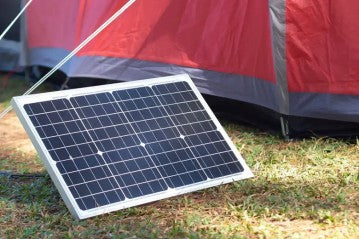
As the demand for sustainable energy solutions grows, more people are turning to solar power to meet their electricity needs. Solar batteries play a crucial role in this eco-friendly revolution by storing the excess energy generated during the day for use during the night or during cloudy weather. If you're considering investing in solar energy and wondering how long it takes to charge a solar battery, you've come to the right place. In this blog post, we'll explore the factors that influence charging time and provide some insights to help you make an informed decision.
1. Understanding Solar Batteries
Before diving into charging times, let's have a quick overview of solar batteries. A solar battery is a rechargeable device that stores energy generated by solar panels for later use. These batteries typically come in different capacities, ranging from a few kilowatt-hours (kWh) to larger units capable of storing tens or even hundreds of kWh. The capacity of the battery affects its charging time, among other factors.
2. Factors Affecting Charging Time
Several factors contribute to the charging time of a solar battery. Let's explore some key considerations:
2.1 Solar Panel Output:
The power output of your solar panels directly impacts the charging time of the battery. Higher-wattage solar panels generate more electricity in a given time, which means the battery charges faster. It's important to choose solar panels with an output suitable for your energy consumption and desired charging speed.
2.2 Battery Capacity:
The capacity of the solar battery is another critical factor. A battery with a larger capacity takes longer to charge compared to a smaller one. However, keep in mind that a higher capacity also means more stored energy for use during periods of low or no sunlight.
2.3 Sunlight Intensity and Duration:
The amount of sunlight your solar panels receive affects the charging speed. Days with clear skies and direct sunlight allow for faster charging compared to overcast or rainy days. Additionally, the duration of sunlight exposure throughout the day also plays a role. Longer exposure to sunlight provides more time for the panels to generate electricity and charge the battery fully.
3. Typical Charging Times
While charging times can vary based on the factors mentioned above, we can provide some general estimates to give you an idea:
3.1 Small-Scale Systems:
For smaller-scale solar systems commonly used in homes or small businesses, the charging time can range from a few hours to a full day. With moderate sunlight and standard-sized panels, a small-scale solar battery can typically charge fully within 6 to 10 hours of sunlight.
3.2 Larger-Scale Systems:
Larger-scale solar systems, such as those used in commercial buildings or off-grid applications, require more substantial battery capacities and longer charging times. It's not uncommon for these systems to take several days to charge fully, especially if they have high-capacity batteries and rely on renewable energy as their primary power source.
4. Optimizing Charging Efficiency
To ensure optimal charging efficiency, consider the following tips:
4.1 Positioning Solar Panels:
Proper positioning of solar panels is crucial for maximizing sunlight exposure. Install them in an area with minimal shading and orient them to face the sun's path throughout the day. Regular cleaning and maintenance of the panels also contribute to their efficiency.
4.2 Battery Management Systems:
Some solar batteries come equipped with advanced battery management systems. These systems monitor and optimize the charging process, ensuring efficient utilization of the available sunlight. Investing in a solar battery with a smart management system can enhance the charging speed and overall performance of your system.
4.3 Battery Sizing:
Choosing the right-sized battery for your energy needs is essential. Oversized batteries may take longer to charge and can be costlier, while undersized batteries might not meet your power requirements during periods of low sunlight. Consulting with a solar energy professional can help you determine the ideal battery size for your specific needs.
Conclusion
The charging time of a solar battery depends on various factors, including solar panel output, battery capacity, sunlight intensity, and duration. Smaller-scale systems may charge fully within 6 to 10 hours, while larger-scale systems with higher-capacity batteries can take several days. Optimizing factors such as solar panel positioning, battery management systems, and battery sizing can enhance the charging efficiency. By considering these factors, you can make an informed decision when purchasing solar energy-related products, ensuring you harness the full potential of this clean and sustainable energy source. Go solar and embrace a greener future!
Remember, when it comes to solar batteries, it's always best to consult with a professional who can assess your specific needs and guide you toward the most suitable solution.
ECGSOLAX offers high quality deep cycle batteries in different specifications and models. If you are interested in our products, please contact us and learn more!

0 comments